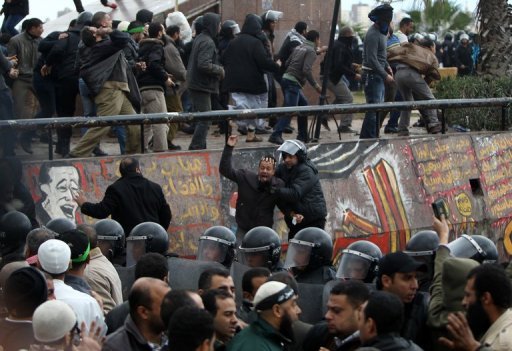Russian President Vladimir Putin’s assertive foreign policy stance of recent years reflects the confidence that comes with a booming economy. In 1999, the year before Putin succeeded Boris Yeltsin as president, Russia’s GDP was a paltry $200 billion. By last year, it had reached $1 trillion. Real growth has averaged 7 percent for eight years, and real incomes have grown by roughly 10 percent per year. Russia’s budget surplus has stood at more than 7 percent of GDP in the last two years, public debt has dwindled to only 8 percent of GDP, from 100 percent in 1999, and the current account surplus has averaged at 10 percent of GDP for the last eight years. But Russia’s stellar economic performance has little to do with Putin’s policy, and a lot to do with the reforms Yeltsin embraced. By 1998, Russia already had achieved a critical mass of markets and private enterprise, while the financial crash of that year worked like a catharsis, forcing the government to abolish enterprise subsidies that underpinned a devastating budget deficit of some 9 percent of GDP. Moreover, world oil prices that had fallen to $10 a barrel started rising toward the stratosphere. The whole success story thus was in place in early 1999, one year before Putin entered the stage. To be sure, Putin should be praised for substantial economic reforms during his first three years. A new tax code was adopted, with lower and fewer taxes, notably a flat income tax of 13 percent. The civil code was completed, a new customs code was enacted, and substantial judicial reform was implemented. At the same time, however, Putin has systematically eliminated the rudimentary democracy Yeltsin had built. One television channel after another was taken over by the state under various pretexts, as were major newspapers. Opposition candidates and parties were denied registration for the slightest formal complaint. Falsification of elections became the rule. Many prominent Russians favored the Pinochet model of authoritarian politics and liberal economics. But growing authoritarianism also hit business. In October 2003, Putin cracked down on Mikhail Khodorkovsky, the CEO and main owner of Yukos oil, Russia’s most valuable company, who was thrown into prison on dubious charges of tax fraud after backing Putin’s political opponents. Moreover, Putin’s associates wanted Yukos’ wealth, which was confiscated by the state oil company Rosneft through lawless taxation, leaving Putin’s tax reform and judicial reform in tatters and severely undermining property rights. In fact, since 2003, Putin’s main economic policy has been re-nationalization. Well-run private companies have been more or less forced to sell out to state-dominated companies. Gazprom is buying up oil (Sibneft), gas, and power companies at knockdown prices, reinforcing its monopoly. That, in turn, allows Gazprom to boost its profitability through price increases, despite stagnant production. Indeed, with state companies now producing one-third of Russia’s oil, output growth has plummeted, as owners of private enterprises – the source of dynamism in the sector – are now afraid to invest in new capacity. Among foreign investors, both Shell and TNK-BP are being pushed out by Gazprom in their main gas fields in Russia. Beyond oil and gas, Russia’s arms export agency, Rosoboronexport, has just seized Avtovaz, the giant dysfunctional Soviet car factory, and VSMPO-Avisma, Russia’s big titanium company, while all aircraft production has been concentrated in one state company. The government cheers this re-nationalization, although it has reduced Russia’s industrial growth from 8.3 percent in 2004 to 4 percent in the last two years. Similarly, inefficient state banks – far inferior to private banks even in Kazakhstan or Ukraine – dominate the banking system. The not very profitable state-owned Vneshtorgbank, for example, is on a buying spree, aggravating the quality of Russian banking. Increasingly, Russia’s oil surpluses drive economic growth through rising investment, which boosts construction and consumption, in turn benefiting retail trade and finance. With personal incomes rising strongly, poverty is declining, while 68 percent of Russia’s college-age youth now attend universities. But other social indicators are unimpressive. Life expectancy for men is stuck at 59. The murder rate is even higher under Putin than it was under Yeltsin, as is the traffic death rate. None of the big public systems – education, health care, or the military – has been reformed, and the regime shows little interest in doing so. Instead, the Kremlin is preoccupied with the profitability and value of the state-dominated companies that it controls. Not surprisingly, all corruption indicators have been rising since Putin took over from Yeltsin, whereas they are falling in most post-communist countries. Although corruption is pervasive, no top official has been prosecuted. Putin and his KGB friends from St. Petersburg sit safely on all this wealth, thanks to their authoritarian governance and control over all security organs. Such a powerful apparatus cannot retire to a quiet life in a dacha as Yeltsin did – it would have to privatize everything first – which implies that Putin has no choice but to remain in office, regardless of what he says about not seeking a third presidential term. But if he holds on to power contrary to the Constitution, his popularity could easily collapse, especially as his economic policy has thrived on luck, not reform. Anders Aslundis a senior fellow at the Peterson Institute for International Economics. His book “How Capitalism Was Built will be published by Cambridge University Press next fall. THE DAILY STAR publishes this commentary in collaboration with Project Syndicate © (www.project-syndicate.org).


